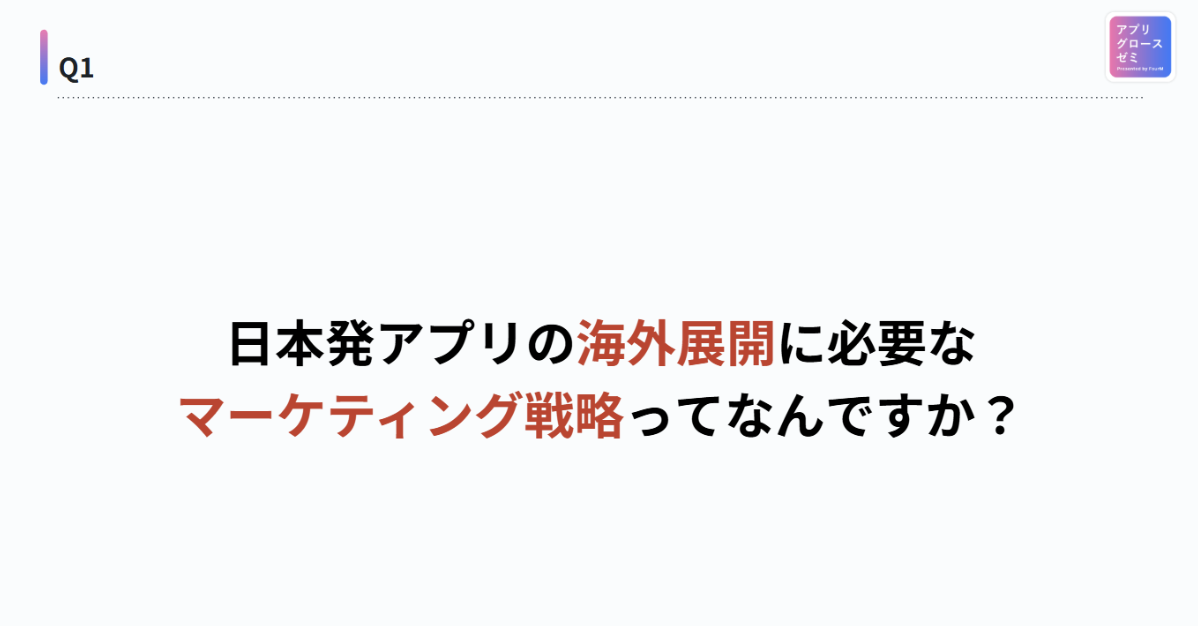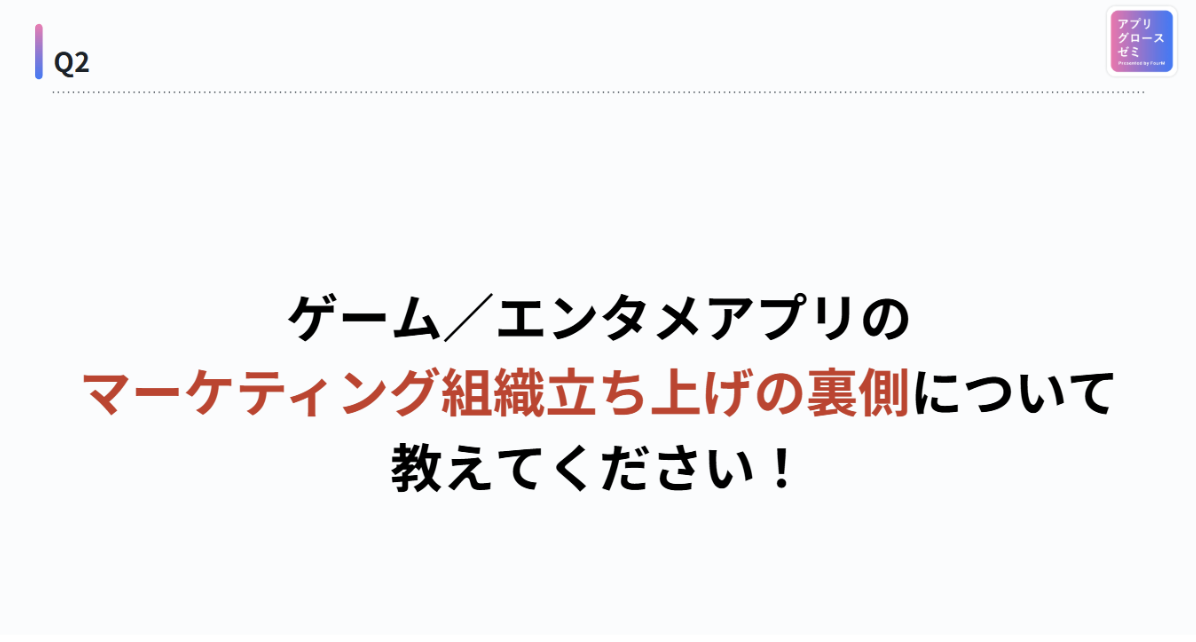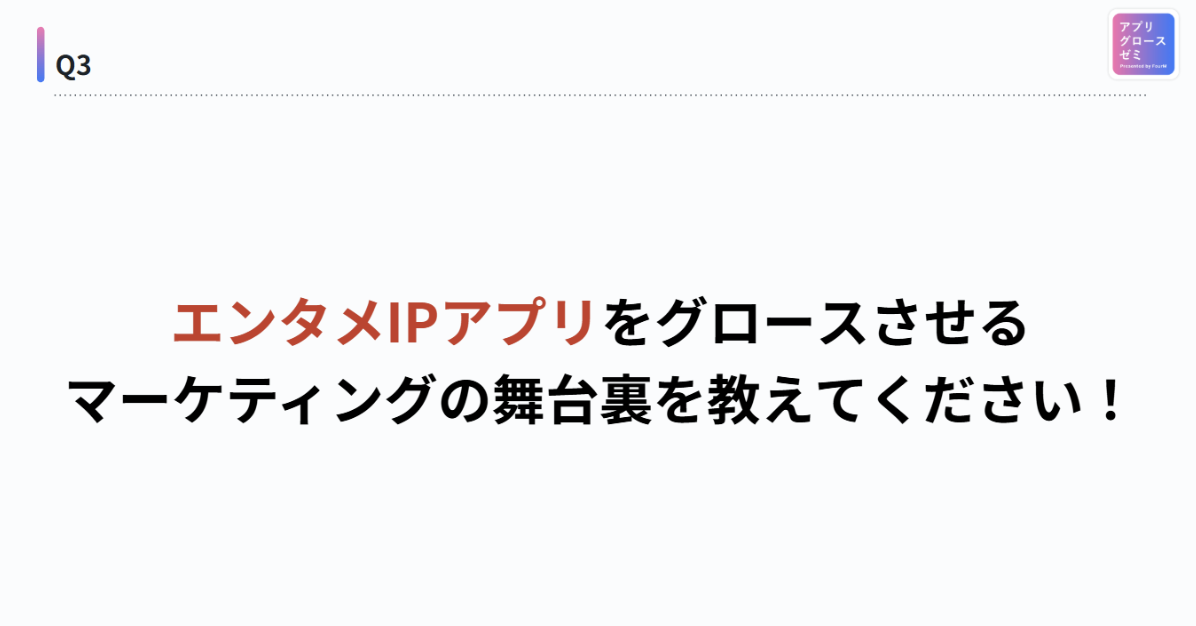
Author: Akira Morishita / Founder & CEO
Born in 1988 in Mie Prefecture, Japan. After graduating from the Faculty of Science and Technology at Tokyo University of Science, he began his career at Macromill, Inc. He then worked in app marketing roles at advertising agencies and social game development companies.
In 2018, he joined Bushiroad Inc., where he was involved in establishing the app marketing department. After serving as Deputy Director of the PR and Advertising Division, he relocated to Singapore in September 2021 to take on the role of Head of Mobile at Bushiroad International Pte. Ltd. He has spoken at numerous events including CEDEC, ad:tech Tokyo, and Abema Prime. He holds an MBA from Bond University.
In December 2021, he published the book “The Easiest App Marketing Textbook” through Impress Corporation, which ranked No.1 in its category on Amazon Japan.
In May 2024, he founded HARS Global Pte. Ltd. in Singapore, providing global marketing consulting and agency services. He is also actively involved in writing marketing-related articles.

Title: The Rules for Success in Overseas Expansion of App and Entertainment IPs App Marketing
Speakers
Akira Morishita (HARS Global Pte. Ltd. CEO): Brings extensive hands-on global app marketing experience, supporting the international expansion of Japan-originated apps.
Tatsuo Sakamoto (Sakamoto Ways B.V.): Specializes in ad tech and entertainment, supporting the global expansion of the manga IP company Comisma while also advising a select group of listed companies.
Ryu Sato (FourM Inc.): Provides marketing support with a focus on monetization and offers deep operational insights from direct experience in app management.
 Question 1: What marketing strategies are necessary for the overseas expansion of Japanese apps?
Question 1: What marketing strategies are necessary for the overseas expansion of Japanese apps?
Morishita outlined two distinct approaches for global market entry: “Minimum Viable Expansion” and “Full Localization Expansion.”
・Minimum Viable Expansion: Initially, release with only language localization and test performance through KPIs before committing to full-scale rollout. Conduct minimal cultural adaptation and price optimization.
・Full Localization Expansion: From the outset, adapt fully to local markets—including UI/UX redesign, voice actor casting, and simultaneous worldwide launch.
A case study was shared where post-launch KPI analysis revealed that Korean users had particularly high ARPU, leading to the decision to add Korean localization and influencer-driven campaigns—significantly boosting results. Morishita emphasized the importance of designing products with multilingual readiness from the earliest stages.

Question 2: Tell us about the behind-the-scenes process of establishing a marketing organization for games and entertainment apps!
The discussion then turned to building and localizing marketing organizations.
・Successful cases shared one key factor: hiring native local talent from scratch.
・Simply translating Japanese creatives often produces dissonance, leading to higher CPI/CPA.
・However, challenges include decision-making when incorporating local proposals, and higher costs due to differences in purchasing power.
Morishita remarked: “If you’re serious, go all-in on localization. If not, have the courage to stick with a minimum viable approach.”
He added that while language barriers exist, they are often less restrictive than assumed. Rather than perfect fluency, the real starting point is establishing communication with local creative agencies.

Question 3: Tell us about the behind-the-scenes marketing strategies for growing entertainment IP apps!
The final theme focused on strategies for growing apps tied to entertainment IP.
・The hypothesis of non-reproducibility: A case was shared where the unexpected success of an anime in China triggered revenue surges in related games and merchandise—highlighting the uncontrollable weight of external factors.
・While high-profile IP hits can succeed regardless of the marketer in charge, the true test of a marketer comes in uncertain situations: sustaining profitability and optimizing operations under tight constraints, while executing revenue-sensitive measures.
・On AI utilization, Morishita noted its usefulness for idea generation, rough drafts, and voice synthesis, but pointed out that final creative deliverables remain constrained by brand standards and business practices of IP owners.
If you’re interested in our support, please feel free to contact us through the inquiry form below.
“First of all, I am grateful for the opportunity to exchange ideas with fellow marketers working at the forefront of the global market. Through this webinar, I was once again reminded of the challenges of overseas expansion, the need for localization, and the unique uncertainty of the entertainment IP business.
At the same time, I believe we were able to share many practical insights—such as preparing for multilingual support from the start, hiring local talent, and setting clear investment criteria—that can be applied immediately.
There is no single ‘right answer’ in global expansion or IP-driven businesses. That is why it is essential to form hypotheses, listen to local voices, and turn even failures into learning opportunities.
I sincerely hope that the insights shared here spark discussions within your teams and serve as inspiration for your next step.” — Akira Morishita
https://harsglobal.com/news_en/1043
ios_shareCopied to clipboard!